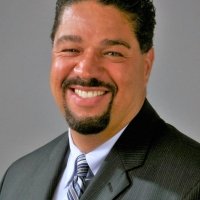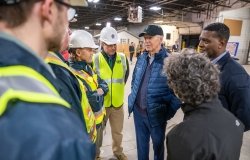Global Trends, Local Stories: New Films on India and Ethiopia
On March 24, the DC Environmental Film Festival comes to the Wilson Center for the Washington, DC, premieres of two new short documentaries from ECSP, “Broken Landscape” and “Paving the Way.” Filmmaker and ECSP Multimedia Producer Sean Peoples will describe his journey from the eroded gullies of Ethiopia to the rat-hole mines of northeastern India during a panel discussion led by the Wilson Center’s Roger-Mark De Souza, with observations from Sierra Club's Kim Lovell and World Resources Institute's Ferzina Banaji.
Overview
On March 24, the DC Environmental Film Festival comes to the Wilson Center for the Washington, DC, premieres of two new short documentaries from ECSP, “Broken Landscape” and “Paving the Way.” Filmmaker and ECSP Multimedia Producer Sean Peoples will describe his journey from the eroded gullies of Ethiopia to the rat-hole mines of northeastern India during a panel discussion led by the Wilson Center’s Roger-Mark De Souza, with observations from Sierra Club's Kim Lovell and World Resources Institute's Ferzina Banaji. About the films: Broken Landscape: Confronting India’s Water-Energy Choke PointIn India’s resource-rich Meghalaya State, demand for coal is transforming the environment and the people who depend on it. Coal mine owners are prospering from booming production, but few laws regulate the dangerous and polluting practice known as “rat-hole” mining. Until now. A new government tribunal recently banned all coal mining in the region. Mine owners and workers staged protests, while people living downstream struggle to cope with dead rivers. Nepalese migrants who crossed the border to work in the mines are stuck in the middle. Paving the Way: Ethiopia's Youth on the Road to SustainabilityIn Central Ethiopia’s remote Gurage Zone, poverty and environmental degradation have held back development for generations. In Paving the Way, youth, parents, and elders are building a more sustainable future by connecting the dots between conservation, access to healthcare, and new livelihoods. The film is the final installment in our “Healthy People, Healthy Environment” trilogy exploring how communities around the world develop integrated solutions to the interconnected challenges of population, health, and environment.
Join the conversation on Twitter by following @NewSecurityBeat and find related coverage on our blog at NewSecurityBeat.org.
RELATED CONTENT:
- Broken Landscape: Confronting India’s Water-Energy Choke Point
- Unprecedented Coal Shutdown Tests Authority of India’s New Court
- Five Years of Population, Health, and Environment Programs: What Works and What’s Next?
Media guests, including TV crews, are welcome and should RSVP directly to Benjamin.Dills@wilsoncenter.org. Media bringing heavy electronics MUST indicate this in their response so they may be cleared through our building security and allowed entrance. Please err toward responding if you would like to attend.
Speakers
Ferzina Banaji

Roger-Mark De Souza
Former Director of Population, Environmental Security, and Resilience
Kim Lovell
Michael Miller

Sean Peoples
Hosted By

Environmental Change and Security Program
The Environmental Change and Security Program (ECSP) explores the connections between environmental change, health, and population dynamics and their links to conflict, human insecurity, and foreign policy. Read more

Africa Program
The Africa Program works to address the most critical issues facing Africa and US-Africa relations, build mutually beneficial US-Africa relations, and enhance knowledge and understanding about Africa in the United States. The Program achieves its mission through in-depth research and analyses, public discussion, working groups, and briefings that bring together policymakers, practitioners, and subject matter experts to analyze and offer practical options for tackling key challenges in Africa and in US-Africa relations. Read more

Indo-Pacific Program
The Indo-Pacific Program promotes policy debate and intellectual discussions on US interests in the Asia-Pacific as well as political, economic, security, and social issues relating to the world’s most populous and economically dynamic region. Read more

Global Risk and Resilience Program
The Global Risk and Resilience Program (GRRP) seeks to support the development of inclusive, resilient networks in local communities facing global change. By providing a platform for sharing lessons, mapping knowledge, and linking people and ideas, GRRP and its affiliated programs empower policymakers, practitioners, and community members to participate in the global dialogue on sustainability and resilience. Empowered communities are better able to develop flexible, diverse, and equitable networks of resilience that can improve their health, preserve their natural resources, and build peace between people in a changing world. Read more
Thank you for your interest in this event. Please send any feedback or questions to our Events staff.








